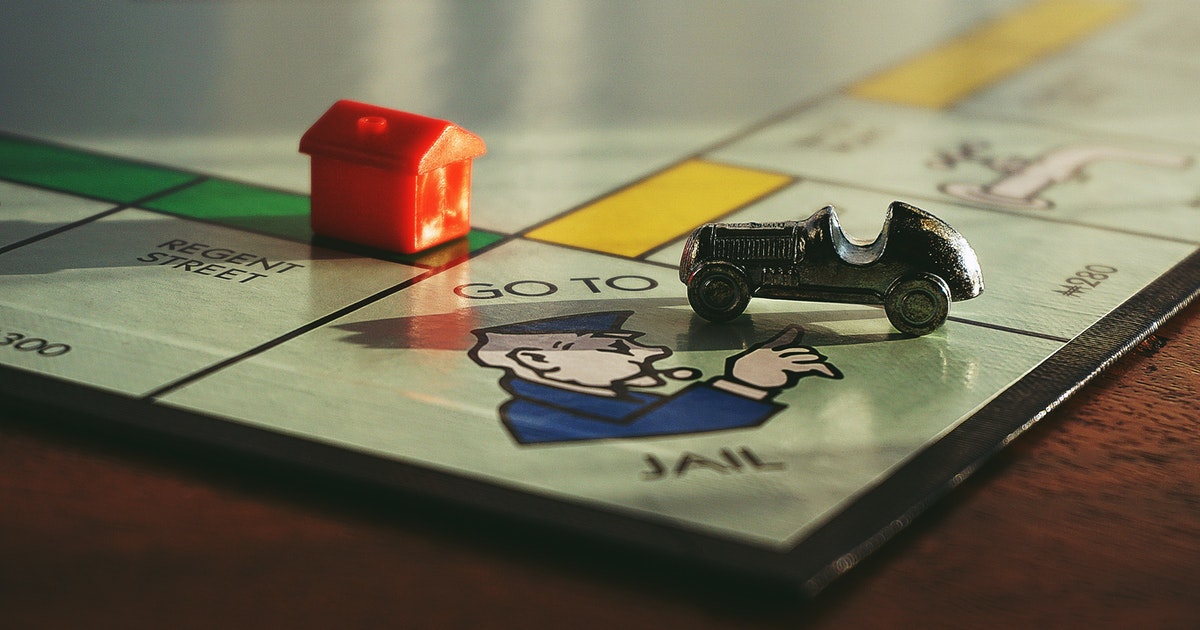
Did you know the Bible actually says God gives us the ability to produce wealth?
11 Be careful that you do not forget the Lord your God, failing to observe His commands, his laws and His decrees that I am giving to you this day. 12 Otherwise, when you eat and are satisfied, when you build fine houses and settle down, 13 and when your herds and flocks grow large and your silver and gold increase and all you have is multiplied, 14 then your heart will become proud and you will forget the Lord your God, who brought you out of Egypt, out of the land of slavery. 15 He led you through the vast and dreadful wilderness, the thirsty waterless land, with its venomous snakes and scorpions. He brought you water out of the hard rock. 16 He gave you manna to eat in the wilderness, something your ancestors had never known, to humble and test you so that in the end it might go well with you. 17 You may say to yourself, ‘My power and the strength of my hands have produced this wealth for me.’ 18 But remember the Lord your God, for it is he who gives you the ability to produce wealth, and so confirms his covenant, which he swore to your ancestors, as it is today.
Deuteronomy 8:11-18
Some translations say power to create instead of ability to produce wealth but the meaning is the same. We can produce wealth because God enables us to do so.
The key verse is Deuteronomy 8:18 which says ‘… for it is [God] who gives you the ability to produce wealth’
We need to read the whole passage in context, however. The good news, that God gives us the ability to produce wealth, is framed in a warning and this is the main thrust of the passage. Be careful that you do not forget the Lord your God.
The passage leads with these words in verse 11 and then echoes the warning in verse 18. But remember the Lord your God… because is he who gives you the ability to produce wealth.
Most sermons you hear on this passage will concentrate on the warning, and rightly so. After all, this is primarily what the passage is about. They will focus your attention on the fact that God is concerned with your eternal soul and that things of this world are transient. God comes first and is the most important aspect of our lives. All of this is true and we would do well to remember that.
However, this glosses over an interesting fact in the Bible; God actually gives us the ability to produce wealth!

The Ability to Produce Wealth
Note, God’s word says he gives us the ability to produce wealth. This does not mean that every person automatically has instant access to wealth. I may have the ability to run a marathon in under four hours but that doesn’t mean I automatically can.
In order to achieve my ability, I would need to discipline myself, maintain a healthy diet and train hard. I would need to do this consistently over a period of months or even years. While most people are enjoying their morning lie-in, I would have to be out early in all types of weather, ensuring that I put in the miles I need to achieve my goal.
If I choose to adopt a couch-potato lifestyle instead of training as I should, it is unlikely I would ever realize my God-given ability.
I might even have a personal mental block that prevents me from achieving my ability. What if I believed that the Marathon is a race that has its roots in pagan religion? Since the Marathon distance originates in the Olympics which were a celebration of the ancient Greek gods, I might conclude that partaking in, or even attempting to run, a marathon is actually a form of idolatry. As such, I might justify my choice to sit on the couch with a packet of crisps, a few bars of chocolate and a constant supply of sugary drinks while I watch some sport on TV. All in my effort to avoid idolatry.
That thinking probably sounds a bit silly to most people. And yet, we do this with money all the time. The Bible tells us that God has given us the ability to produce wealth. However, instead of exercising that gift, we choose the metaphorical sofa instead. More than that, we are so terrified of making money an idol in our lives that we justify our choice.

How to Produce Wealth
The ability to produce wealth comes down to two things:
- The ability to acquire wealth and
- The ability to keep wealth
This requires discipline and consistency. Above all, I believe we need to root out the love of money in our lives to achieve this.
Ability to Acquire Wealth
In order to acquire wealth, we need to ensure that we spend less than we earn. The only way to do this is to:
- Increase our income and / or
- reduce our expenses
In the main, finding ways to reduce expenses is easier than generating additional income. That said, you don’t have to choose one or the other; you should pursue both goals at the same time.
Here is an easy way to reduce your expenses. Get your bank statements for the last three months and go through every item on the list. Focus particularly on the recurring items and follow three easy steps.
1. REMOVE Unnecessary Expenses
You have to be brutal when you do this. What about that gym membership that you haven’t used in over a year? If you are truly honest with yourself, you’re never going back. Cancel it!
That Amazon Prime membership that you signed up for to get free a month’s service? I know, you meant to cancel it at the end of 30 days but then forgot. Cancel it now.
And those subscriptions you have been meaning to cancel but simply never get around to … you know what to do.
What about recurring restaurant bills? If you think about it, eating in is both cheaper and healthier.
I never said this would be easy. It will require some tough choices.
Be brutal. Any expenses that are not absolutely necessary have to go.
Once you have done that, you can move on to step two.
2. REDUCE Remaining Expenses
This is a headache but probably easier than step one. By casting your eye around, you can often find a cheaper supplier for things like
- Energy bills
- Insurance
- Telephone & Broadband
In fact, your suppliers will actually help you out on this. Simply call up your supplier and tell them you want to move… and listen to the person on the end of the line launch into their retention script.
First, they will offer you a cheaper configuration. Next, they will offer you a discounted price. They will engage in all sorts of ploys to keep your business, every one of which will result in a cheaper price than you are currently paying.
In the end, you can either switch to the cheaper supplier or stay with the existing one at the much better rate; a rate that they should have offered you before you told them you planned to leave.
Now that you have removed unnecessary expenses altogether and reduced the remaining expenses, you are ready for step three.
3. REPAY Outstanding Consumer Credit
One of the necessary expenses that remains will, very likely, be minimum payments on one or more credit cards. You can’t remove or even reduce this expense because you are paying for past purchases. What’s done is done. You can’t change the past. But you can change your behavior going forward.
Take all the extra money you are now saving each month and pay off the outstanding balance on your credit cards. This may take a few months but it will be worth it.
There are two trains of thought on this. One suggests that you pick the card with the highest interest rate and pay that off first, then the next highest and so on.
An alternative approach is to pick the one with the smallest balance outstanding and pay that off first, then the next smallest and so on.
The first approach is the more sensible financial one as it will save you the most money in the shortest time. However, studies have shown that the psychological satisfaction of paying off one of your cards is often a greater motivation. Of course there is every chance that your smaller balances come at a higher interest rate in any case.
No matter which option you choose, work to get those credit balances down to zero. Pay off one card, and then the next, until all your cards are down to a zero balance. This will once and for all reduce the impact of interest on consumer debt in your life and free you up to begin planting the seeds from which your wealth will grow.

Ability to Keep Wealth
It sounds absurd but it is true. The ability to keep the wealth you have generated is as much as skill as the ability to acquire wealth. It’s no accident that so many lottery winners end up in a worse financial state within a year or two of winning millions of dollars.
However, it is not just lottery winners who fall into this trap. Many successful business owners build up a company from nothing and sell it for millions. Then, they manage to lose it all in two years or less.
This is because wise investment requires a different skill-set than entrepreneurship. Both of these skills can be learned with the right information and proper mentorship or guidance.
One of the lessons I have learned with respect to keeping wealth is to simply slow down and limit expectations. Every time I have lost a significant amount of money, has been when I tried to grow too fast or too soon. Wealth creation is a slow burn and there are no short-cuts or get-rich-quick schemes. Slow and steady wins the day – every time.

Keeping Things in Perspective
We all know how easy it is to forget God when things are going well. As we discipline ourselves and begin to create wealth, we increase our financial knowledge and wisdom.
Each success builds on the previous one and the temptation is always there to think that we are doing this in our own strength. As our wealth begins to grow, let’s heed the warning in Deuteronomy 8:11-18 and remember the Lord in all we do.
Let us never forget that God is the source of all that is good in our lives and let us not become so arrogant as to think that what we have achieved in life is by our own strength.























